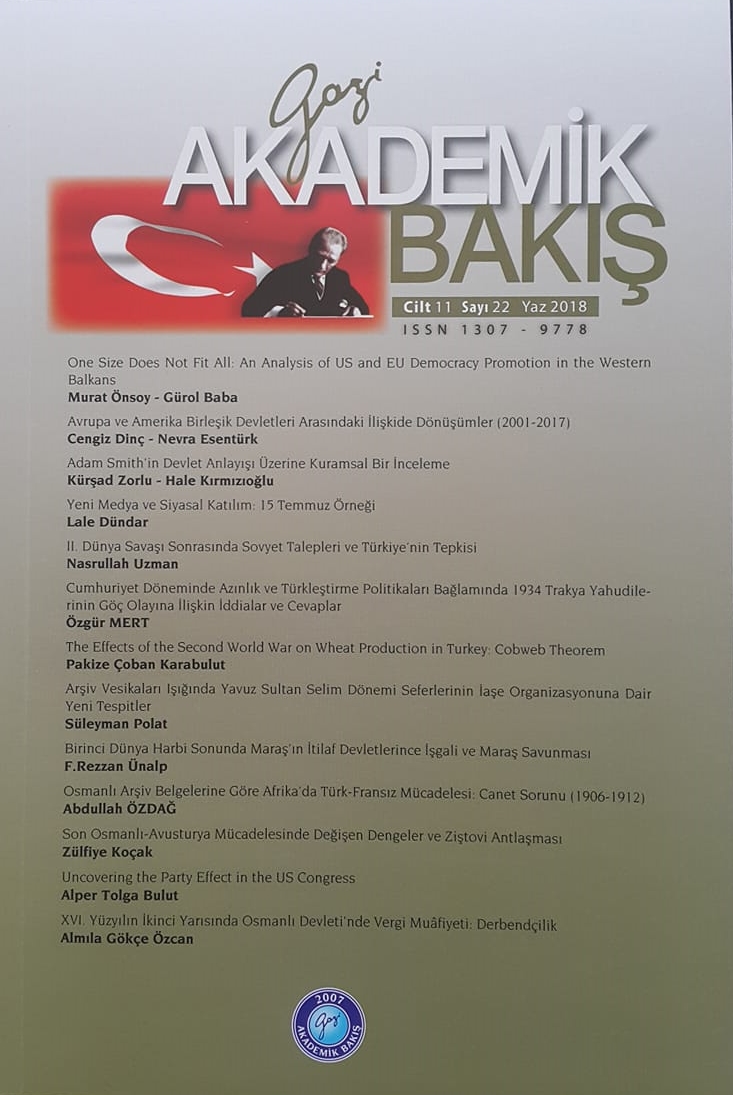XVI. Yüzyılın İkinci Yarısında Osmanlı Devleti’nde Vergi Muâfiyeti: Derbendçilik
Tax Exemption in the Ottoman State in the Second Half of the XVI. Century: The Derbend Organization
Author(s): Almıla Gökçe ÖzcanSubject(s): Geography, Regional studies, Economic history, 16th Century, The Ottoman Empire
Published by: Gazi Akademik Bakış
Keywords: Ottoman State; tax exemption; derbend; Province of the Anatolia; Province of the Rumelia;
Summary/Abstract: In this article, it has been aimed to examine, based on the derbend model and in accordance with the decrees contained in Mühimme register books, the reasons behind the tax exemption applied by the Ottoman State for Anatolian and Rumelian Provinces in the second half of the XVIth century, as well as the types of exempted taxes and the perception of state and society towards tax exemption. Therefore, the subject of this article covers the tax regime and tax exemptions which derbendci was subjected to, the abuse of the derbend system. Also inform to the reasons behind the establishment of derbend, the duties of the derbendci, and revocation of the derbend to ensure the integrity issues. The Ottoman State had granted tax exemption for the ‘derbendci’ who carried out a strategic mission, in return of its service. The Derbend has been established in order to maintain the security of roads and settlement areas as well as to facilitate inhabiting. The economic and social depression encountered by the Ottoman State throughout the second half of the XVIth century have led the people to claim themselves being derbendci to avoid tax charge, and provoked unlawful intervention of the state officers toward derbendci.
Journal: Gazi Akademik Bakış
- Issue Year: 11/2018
- Issue No: 22
- Page Range: 305-322
- Page Count: 18
- Language: Turkish

